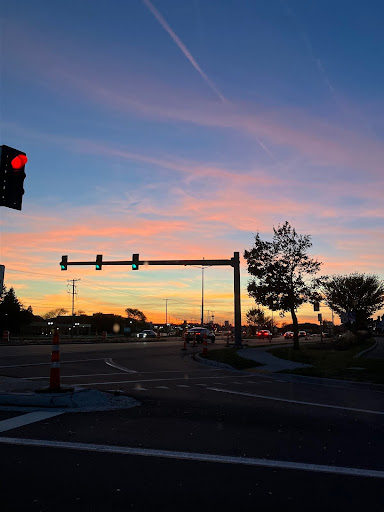
On Sunday, November 3 daylight savings ended, turning the clock back one hour for the winter until the spring comes again. The efficacy of DST (daylight savings time) can be controversial, with many either liking or disliking it. I wanted to find out whether people benefit more from practicing daylight savings, or not.
Why do some countries turn their clock forward an hour in the first place? Daylight savings time was first used by a town in the Ontario region of Canada in 1908, with other towns, cities, and states soon catching on. Eventually, most European countries, and a few others including the US, New Zealand, and parts of Australia implemented this system. DST is said to benefit both the spring/summer and fall/winter seasons, pushing the time the sun sets back in the former, and “making” the sun rise earlier in the latter.
Still, not the whole world seems to benefit from the initiative. The state of Arizona, for example, hasn’t removed itself from daylight savings since 1967, opting to stay at the same time the entire year as opposed to the rest of the country. Their reason for this is the climate, which is hot and bright, especially in the summer, and another hour of daylight means more energy consumption for households to keep it cool. Arizona is not an exception, however. More than half of the world doesn’t use daylight savings; in fact, most countries that do use it are in Europe and North America.
For some, the switch during DST can be especially hard. The lag in schedules can affect routines, sleep schedules/circadian rhythms, and work. Talking to classmates echoed these points, with struggles from the change “It messes with my routine and throws me off in the mornings and night for 2 weeks!” one classmate, Lauren Lippe, said. When asking her how she would feel if daylight savings was eliminated, she replied that she would be “happy, it’s easier and would help keep my sleep schedule consistent.” Agreeably, during daylight savings in the fall, it isn’t the most energizing to wake up to a pitch black sky, with not even a ray of sun peeking over the horizon.
However, not all views are equal. When asking an anonymous classmate the same question, they stated, “I don’t feel like it would make a huge difference in my life.” After all, the change is only an hour, and some may be able to adjust to the difference quickly. DST is meant to preserve daylight, and it does that in the summer, providing more time for outdoor leisure activities.
All in all, daylight savings efficiency comes down to the individual and how it affects their life. For example, some may prefer more daylight later in the evening during the summer, and others the morning light in winter.


